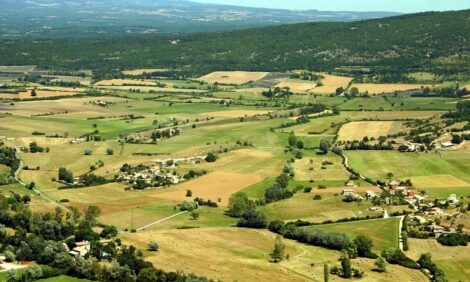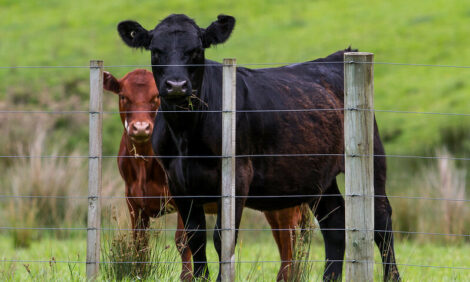



Building Resilient Food Systems, Adaptation to Climate Change
KENYA - Ecosystem-based adaptation approaches should be mainstreamed and up-scaled to build resilient food systems and adapt to climate change in Africa. This was the declaration made by participants to the 1st Africa Food Security and Adaptation Conference held on 20-21 August 2013 in the UN offices in Nairobi, Kenya.Agriculture, including livestock, forestry and fisheries, is by far the sector most affected by climate change. Climate change will impact food security, both directly causing less food availability and indirectly, leading to loss of jobs and livelihoods which in turn would affect the purchasing power of farmers and consumers living in Africa and globally at large.
Climate change adds a new challenge and uncertainties to agricultural and rural development. Many countries in Africa are amongst the most vulnerable in ensuring food security and adapting to ongoing effects and risks of climate changes. For example, 95 per cent of the food in Sub-Saharan Africa is grown under rain fed agriculture, and thus vulnerable to adverse weather conditions.
Speaking for FAO, Modibo Traore, sub-regional coordinator for Eastern Africa (SFE) emphasized the importance of focusing on ecosystem based approaches for food security and adaptation to climate change. "This topic enables us to address the critical nexus between agriculture, food security and climate change in a systemic way."
Mounkaila Goumandakoye, Regional Director & Representative, UNEP Regional Office for Africa said that with the shift towards Sustainable Development Goals (SDG) , replacing the Millennium Development Goals (MDGs) after 2015, approaches that serve multiple purposes and provide cross-cutting benefits are highly needed in Africa.
He added that "achieving food security is unmanageable without adaptation to climate change measures and practices that not only support farmers in producing enough food to meet people's nutritional needs, but that also preserve ecosystems from degradation."
Addressing challenges to ensure sustainability of agriculture
Recognizing that Africa faces food shortages due to lack of knowledge, poor agricultural practices, depletion and degradation of ecosystems, high population growth, water scarcity, disease, natural calamities and disasters, extreme poverty and insufficient policies, FAO has engaged in an organisation-wide climate change framework programme, entitled FAO-Adapt.
FAO-Adapt brings together multi-disciplinary expertise within FAO and external partners and focuses on key elements of reducing vulnerability and increasing the capacity to the impacts of climate change.
"To better respond to the linked challenges of food security and climate change FAO has forged the climate-smart agriculture concept which aims at improving food security by sustainably increasing production and farmers’ income, helping communities to adapt and build resilience to climate change. Sustainable production intensification, as defined in the new paradigm "save and grow" promoted by FAO, means a productive agriculture that conserves and enhances natural resources. It uses an ecosystem approach that draws on nature’s contribution to crop growth – soil organic matter, water flow regulation, pollination and natural predation of pests – and applies appropriate external inputs at the right time, in the right amount to improve crop varieties that are resilient to climate change and use nutrients, water and external inputs more efficiently. It is knowledge intensive and highly context specific," Mr Traore said.
During the meeting governments, civil societies, local populations, bilateral and multilateral development assistance agencies, the private sector and other stakeholders were encouraged to strengthen the contributions of ecosystem-based approaches to food security and adaptation to climate change. This can be done through policy and planning where strong institutional structures should be established for proper implementation and replication of the ecosystem based approaches. It also called for governments together with the private and civil sector to facilitate access of rural youth to the agricultural sector and provide incentives to halt the rural-urban migration in order to ensure a sustainable increased production to feed the continent.
Large scale capacity buildingand awareness creation, education and expert training and timely support to farmers are necessary while infusing in elements of legislation for sustainable resource management.
In addition, more research is needed to ensure that technologies are compatible with local context and adaptable in new regions ear marked for up scaling. Indigenous knowledge must form the basis of the intervention before scientific knowledge is introduced.
Mr Traore further stressed the importance of regional cooperation for adaptation to climate change, and pointed that the meeting took place at an opportune time which can make a very useful contribution to our understanding of the way ecosystem services can be strengthened in the face of climate change to ensure food security in the long term.
TheCattleSite News Desk


